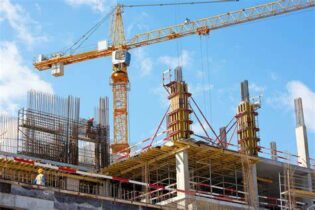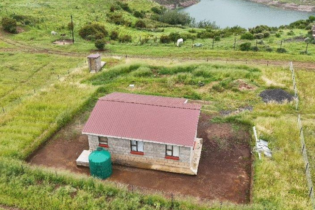The slow pace of economic growth along with government delays in awarding tenders continue to limit the recovery of the local infrastructure and construction sector.
The downturn may have given some respite to the scarce skills shortage. However, South Africa is not training enough engineers, artisans and technicians to deliver the long-awaited R845-billion government infrastructure projects in the pipeline. This is the conclusion of the 2012 Infrastructure Sector Research Survey, carried out by executive search firm, Landelahni Business Leaders Amrop SA. “Across the world, crucial infrastructure schemes are competing for a dwindling skills pool amid fears that the skills shortage could delay projects in major markets,” says Landelahni CEO Sandra Burmeister. “Driven largely by China and India, construction is expected to grow globally by 67% over the next eight years. “Meanwhile SA’s major construction companies are looking northwards to win a share of the huge infrastructure projects being rolled out across the African continent. “Developing and retaining key technical skills is essential if this country is to meet the challenge of building massive new infrastructure while – at the same time – upgrading existing services.” The 2012 Landelahni Infrastructure Sector Survey researched 75 companies with just over 300 000 permanent employees in the electricity, water, waste, road, rail and ports sectors, as well as consulting engineers, major listed and unlisted construction companies and large suppliers to the construction industry.Global infrastructure growth
“The demand for infrastructure is driven by rising populations and rapid urbanisation and is causing a shift for all players in the sector,” says Burmeister. “Internationally, recovery is slow, but the outlook is extremely positive between now and 2020.”
Construction is expected to grow from $7,2 trillion to $12 trillion in 2020, driven largely by emerging markets. An Oxford Economics survey estimates that construction will account for 13,2% of global GDP by 2020.
Asian markets will continue to develop rapidly, with China and India driving growth. Stimulus spending across both developed and developing economies will continue to boost the industry, as will increasing demand for traditional and alternative energy sources. “The SA government’s ambitious infrastructure drive is intended to jump start growth,” says Burmeister. “The Medium-Term Expenditure Framework (MTEF) has set aside R845-billion for public sector infrastructure projects with a further R3,2-trillion infrastructure projects under consideration up to 2020. “So far, around 25% of these are being financed and implemented. This means a R250-billion spend per year – about R100-billion more than the average spent over the past five years, including the FIFA World Cup.” Growth in sub-Saharan Africa is expected to be about 14% higher than that in South Africa. On the African continent $20-billion in infrastructure projects are already underway. According to the 2012 KMPG Global Construction Survey, “new infrastructure projects are expected to be on a huge scale, so size and global reach will matter. With scale comes complexity as global players navigate tough political, commercial, regulatory and governance environments.” “This calls for advanced leadership skills,” says Burmeister. “Winning new contracts is increasingly about having the right expertise. We need to develop enough skills to ensure proper maintenance and timeous upgrades of existing infrastructure, and to avoid further deterioration of essential services across the country.”





